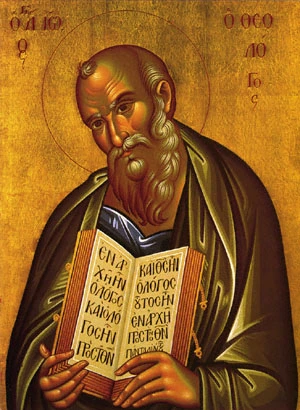The Gospel of John is one of the most theologically profound and spiritually rich books in the Bible. Written with the clear purpose that its readers would believe that “Jesus is the Christ, the Son of God” (John 20:31, ESV), John takes us beyond the surface of Jesus’ miracles and teachings, inviting us into a deeper understanding of who He truly is.
Unlike the Synoptic Gospels (Matthew, Mark, and Luke), John emphasizes Jesus’ divine nature, His intimate relationship with the Father, and the transformative power of faith. Let’s explore five major themes in the Gospel of John that reveal the heart of the message—and the heart of God.
1. The Deity of Christ: Jesus Is God
John makes one of the strongest declarations in Scripture about Jesus’ divine nature right from the start.
“In the beginning was the Word, and the Word was with God, and the Word was God.”
— John 1:1, ESV
This statement sets the tone for the entire Gospel: Jesus is not merely a prophet or moral teacher—He is God Himself, eternal and divine.
🕊 Key Examples:
John 1:14 — “And the Word became flesh and dwelt among us…”
➤ This confirms that Jesus (the Word) is God come in human form.John 8:58 — “Truly, truly, I say to you, before Abraham was, I am.”
➤ Jesus uses the divine name “I AM” (Exodus 3:14), identifying Himself with Yahweh. This bold claim led His opponents to try to stone Him for blasphemy (John 8:59).John 10:30 — “I and the Father are one.”
➤ A clear assertion of unity with God the Father. The crowd responds again by picking up stones, recognizing this as a claim to deity (John 10:31–33).
John wants readers to recognize Jesus not just as Messiah, but as God incarnate—a foundational truth for Christian faith.

2. Eternal Life Through Faith in Jesus
John repeatedly emphasizes that eternal life is found through faith—not in rituals, religion, or works, but in Jesus Christ alone.
“For God so loved the world, that he gave his only Son, that whoever believes in him should not perish but have eternal life.”
— John 3:16, ESV
Faith, in John’s Gospel, is not passive belief—it is a living, trusting relationship with the Son of God.
🕊 Key Examples:
John 11:25–26 — “I am the resurrection and the life. Whoever believes in me, though he die, yet shall he live, and everyone who lives and believes in me shall never die.”
➤ Spoken to Martha before raising Lazarus, Jesus declares that faith in Him conquers death.John 5:24 — “Truly, truly, I say to you, whoever hears my word and believes him who sent me has eternal life. He does not come into judgment, but has passed from death to life.”
➤ Eternal life begins the moment one believes—it’s not just a future hope, but a present reality.John 20:31 — “But these are written so that you may believe that Jesus is the Christ, the Son of God, and that by believing you may have life in his name.”
John’s entire Gospel is a call to faith—faith that brings new birth, new identity, and everlasting life.
3. Miracles (Signs) That Reveal Jesus’ Glory
John refers to Jesus’ miracles as “signs”—not just supernatural acts, but revelations of His identity and mission.
“This, the first of his signs, Jesus did at Cana in Galilee, and manifested his glory. And his disciples believed in him.”
— John 2:11, ESV
There are seven major signs in John’s Gospel, each carefully selected to build belief in Jesus as the Son of God.
🕊 Key Examples:
Water to Wine — John 2:1–11
➤ Demonstrates Jesus’ power over creation and foreshadows the joy and abundance of the New Covenant.Healing the Official’s Son — John 4:46–54
➤ Shows Jesus’ power to heal from a distance, revealing His divine authority.Healing the Paralyzed Man — John 5:1–15
➤ Reveals that Jesus is Lord over physical infirmity and the Sabbath.Feeding the 5,000 — John 6:1–14
➤ Highlights Jesus as the true provider, leading into His teaching on the “bread of life.”Walking on Water — John 6:16–21
➤ Displays His power over nature and reassures His presence amid fear.Healing the Man Born Blind — John 9:1–41
➤ Points to spiritual sight and judgment, exposing the blindness of the religious leaders.Raising Lazarus from the Dead — John 11:1–44
➤ The most powerful sign, prefiguring Jesus’ own resurrection and proving His authority over life and death.
“These signs are written so that you may believe…” (John 20:31)
John presents these miracles as evidence—not entertainment, but revelation.

4. The “I Am” Sayings of Jesus: Bold Declarations of Divine Identity
John’s Gospel features a series of “I Am” statements—each revealing something profound about Jesus’ character and mission. These phrases mirror the divine name God gave Moses in Exodus 3:14: “I AM WHO I AM.”
“Jesus said to them, ‘I am the bread of life; whoever comes to me shall not hunger, and whoever believes in me shall never thirst.’”
— John 6:35, ESV
🕊 Seven “I Am” Sayings:
“I am the bread of life” – John 6:35
➤ Jesus sustains us spiritually, just as bread sustains physically.“I am the light of the world” – John 8:12
➤ He leads us out of darkness into truth and clarity.“I am the door of the sheep” – John 10:7
➤ Jesus is the only way into the kingdom and to safety.“I am the good shepherd” – John 10:11
➤ He knows, loves, and lays down His life for His people.“I am the resurrection and the life” – John 11:25
➤ Eternal life is not just what Jesus gives—it is who He is.“I am the way, and the truth, and the life” – John 14:6
➤ Jesus is the exclusive path to the Father—there is no other way.“I am the true vine” – John 15:1
➤ Remaining in Christ is essential to spiritual fruitfulness and life.
These are not metaphors alone—they are claims to divinity and revelations of Jesus’ role in God’s redemptive plan.
5. The Role of the Holy Spirit: God’s Presence With Us
In John 14–16, Jesus introduces the Holy Spirit as the Helper (Greek: Parakletos)—the One who continues His work in the lives of believers after His ascension.
“And I will ask the Father, and he will give you another Helper, to be with you forever.”
— John 14:16, ESV
The Holy Spirit is not an impersonal force, but God Himself, sent to dwell within believers.
🕊 Key Teachings About the Spirit:
John 14:26 — “He will teach you all things and bring to your remembrance all that I have said to you.”
➤ The Spirit helps us understand and apply Jesus’ words.John 16:8 — “He will convict the world concerning sin and righteousness and judgment.”
➤ The Spirit awakens hearts to truth and repentance.John 16:13–14 — “He will guide you into all the truth… He will glorify me.”
➤ The Spirit leads us into a deeper relationship with Jesus and glorifies Him.
The Holy Spirit empowers, teaches, convicts, and comforts—continuing Christ’s presence in and among His people.
Conclusion: Why the Gospel of John Still Matters
The Gospel of John is not just a historical account—it is a spiritual invitation.
It calls you to:
See Jesus as fully God
Believe in Him for eternal life
Recognize the signs that reveal His glory
Trust His “I Am” declarations
Live by the Spirit He promised
“These are written so that you may believe that Jesus is the Christ, the Son of God, and that by believing you may have life in his name.”
— John 20:31, ESV
If you’re looking for a book of the Bible that will deepen your understanding of Jesus, challenge your faith, and transform your walk with God—the Gospel of John is a perfect place to begin.

